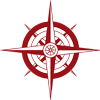The P.A.W.S. curriculum is based on the Guidelines for Preschool Learning Experiences. Instructional practices are developmentally appropriate and designed to support what is considered best practice in early childhood education.
P.A.W.S. Teachers understand that it is through play and exploration and personal relationships that children will develop their understanding of the world around them. They adapt their curriculum activities based on observations of children’s interests and their developmental progress. Activities within the curriculum units are concrete, real, and relevant for the children. The classroom environment is designed so that children learn through active exploration and interaction.
Activities are designed to teach the concepts which children will need to become complex thinkers, self-directed learners, skilled communicators, and community contributors. As children develop greater understanding, the teacher and other staff plan a variety of activities of increasing complexity and challenge.
Children leaving their P.A.W.S. preschool experience are well prepared to make the transition to kindergarten because teachers know what children need to know and be able to do to be successful in kindergarten and beyond.
P.A.W.S. Class Size and Staffing Pattern
P.A.W.S. classes average 15 students and are staffed with a Master degreed experienced teacher, who is licensed in both early childhood education and special education, and at least two teaching assistants depending on the needs of the group.
Additional members of each classroom team include Speech/Language Pathologists, Occupational and Physical Therapists, and a full-time School Psychologist. The Director of Preschool Services directs the program and supervises all staff. Each teaching team has one half-day a week free of children designed for parent meetings, collaboration and curriculum planning and preparation.
Parent Communication and Involvement
The P.A.W.S. staff recognizes the very important role parents/guardians play in their child’s learning process. Teachers make every effort to communicate with parents on a weekly basis and more often if needed. Communication may include a weekly newsletter, a daily journal, a phone call, or an email.
Parents are welcome in the classroom at all times. No appointment is necessary. However, advance notice is appreciated when possible, as other visitors or classroom observations may have been scheduled.
We also recognize our role in helping parents enjoy new friendships with other families as a result of their child’s preschool experience. Opportunities for parents to connect are numerous and include such activities such as the play date arranged for late summer, the classroom open house before school opens, the opening day parent coffee, the monthly PTO Board meetings, etc. Fund raising events that take place throughout the year are additional opportunities for families to get involved with P.A.W.S.
Parent conferences are regularly scheduled for all students twice a year. Parents/guardians or the teacher can initiate additional conferences at any time during the year. A written progress is sent home in January and June.
